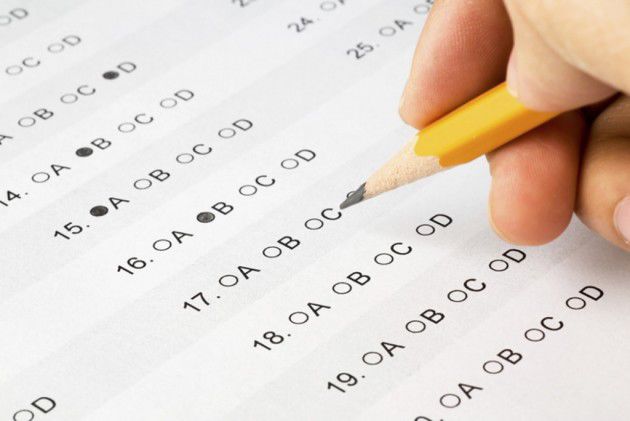Standardized tests prove to be ineffective
November 8, 2016

Although standardized testing is a thing of the past for college students, we all once dreaded taking the SATs and yearly state-standardized testing. Were these tests truly worth our time to take, or could the time have been better spent learning more applicable material for the future?
These tests were not worth our time. They have been deemed ineffective– they do not serve their sole purpose. Standardized tests are designed to be “fair” assessments that eradicates bias and unfair advantages. However, performance on standardized tests depends on the quality of the individual school system, material covered in classes and financial status—all of which can be considered unfair advantages. Some schools may have the financial assets to access materials that will improve test performance, while other schools may not have such ample resources. If one school has certain advanced textbooks, technology and other test guides that other schools cannot afford, then the more fortunate schools have an evident unfair advantage since their quality of education will be higher than others. A teacher may do an incredible job explaining material to students, however, if he or she does not have the resources that other schools have, then the students’ educations are compromised.
More so, due to the pressures faced by administration, teachers will essentially teach the students how to approach and solve problems expected on standardized exams. Consequently, students will forcibly memorize how to answer specific questions in certain ways in order to achieve the highest score. However, this defeats the purpose of these exams—the students should not have to take practice standardized tests before the actual examination. These exams are meant to test a student’s accumulated skills and ability to apply their knowledge—not their ability to robotically approach a problem and repeat a process taught specifically for answering questions on a standardized tests. This time spent training students to answer questions correctly could be better spent by learning valuable material to succeed in the future, including how to do income taxes. Students should acquire unique skillsets from their teachers because each teacher’s teaching style is different; however, teachers are restricted on what they can teach due to standardized testing and a preset curriculum.
Specifically for the SATs, many students have an unfair advantage over others due to their financial status. Some students have the financial assets to pay SAT tutors, who teach them techniques and methods for how to solve problems. By having this opportunity, those kids will most likely receive higher scores and thus possess a significant unfair advantage over others who cannot afford such luxuries. Since these standardized test scores are pertinent information used by colleges to determine acceptances, there should not be any unfair advantages that result in higher test scores. A student’s chances of getting accepted into a school should not be dependent on his or her financial status. Colleges do not incorporate the resources used to achieve standardized test scores, therefore students are compared in ineffective ways.
In order to solve the issues of standardized tests, the primary form of action is consistent creation of unexpected problems on exams. Problems should enforce completely new ways of thinking, instead of robotic methods drilled into students’ heads. These problems should be strikingly different from previous problems on tests, otherwise severe unfair advantages will be present. By doing this, students are forced to use their acquired set of skills from years of primary schooling to determine new ways to solve problems.
Standardized tests can be a useful benchmark for determining students’ performance in states and the country if the issues explained above are eliminated. Unless administration and colleges consider that performance on standardized tests depends on quality of the individual school system, material covered in classes, and ultimately financial status, then there are many unfair advantages present in our testing system.










